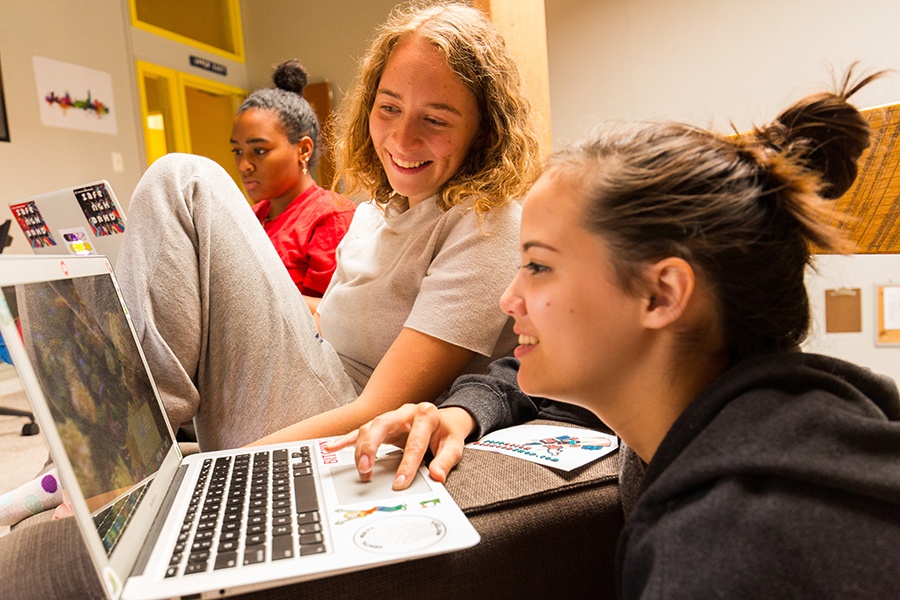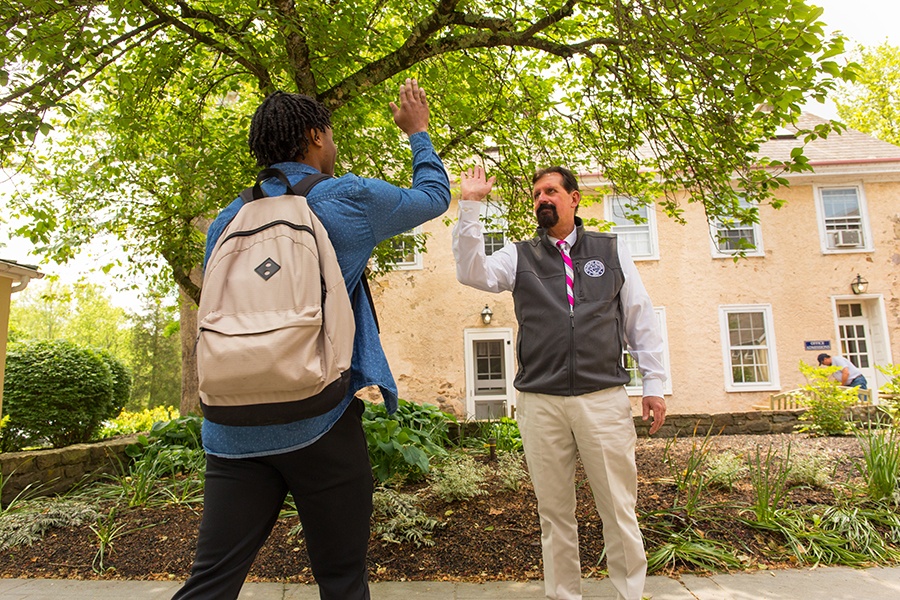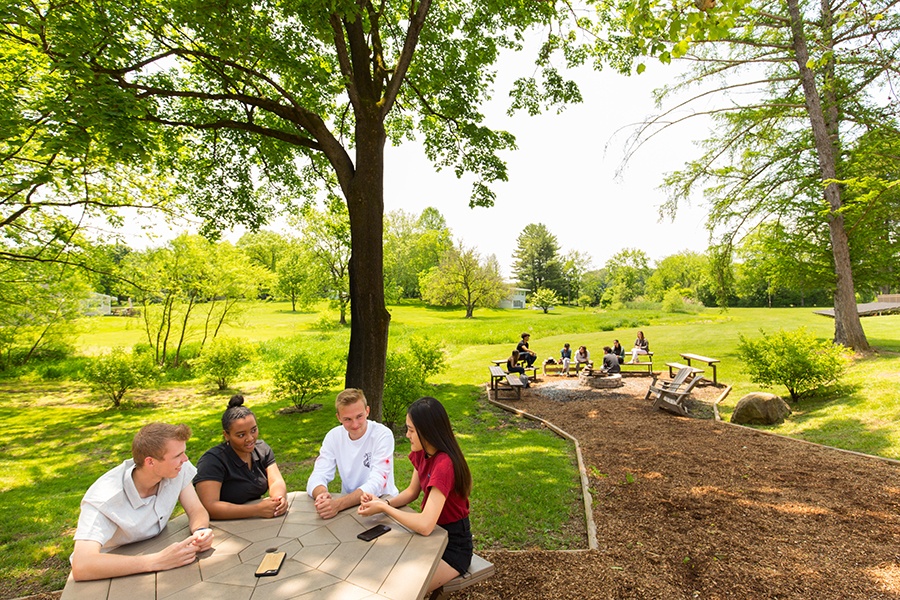Prepared for Life: 5 Lessons Every Teen Should Learn Before Going to College

Watching your high schooler transition into (gulp) adulthood can get any parent feeling nervous. The best gift you can give your kids, however, is the right tools to navigate the future ahead. We chatted with the experts at Solebury School, a co-ed boarding and day school in New Hope, Pennsylvania, about the necessary lessons every well-rounded teen should learn before transitioning to the next step. Here’s what they’ll need to know in order to tackle the subsequent four years and beyond.
1. Learn to use time wisely.
Teens need the chance to test newfound independence in a lower-stakes environment before moving up to the big leagues. Whether it’s studying or hanging out with friends, students should have the opportunity to set a schedule and make smart choices for themselves. “We give the illusion of a lot of independence while we’re watching them very closely, so we don’t allow them to fall far before we catch them and put them back on the right path,” says Holly Victor, Solebury School’s Assistant Director of Advancement, a current parent and alum of the school. “By the time they get to college, they’re able to navigate social situations and long free periods where no one’s telling them to do their homework.”
2. Expand your definition of success.
Students often enter high school with one goal in mind: getting into college. But part of these four years is not only preparing for the right school, but also better identifying their passions and needs. “Success doesn’t just look one or two ways,” says Sasha Skulsky, Solebury School’s Dean of Residence Life. “You have to help them to hone their path.” For example, one former Solebury student decided to defer admission at Duke University and spend a gap year pursuing internships abroad to gain additional experience.

3. Put yourself in others’ shoes.
Living with a roommate isn’t quite the same as living with the people you’ve grown up with for 18 years. High schoolers need to adopt an empathetic mindset as they expand their social circles. “One of the benefits of being in a boarding school with so many of your peers is shifting the focus from being self-centered to other-centered,” Victor says. “Students have the opportunity to see their friends wrestle with the same things they’re dealing with, and maybe from a very different perspective.”
4. Recognize when you’re doing your best — or not.
Part of becoming an independent adult is also learning when to tap into your support systems. But how can your child determine when’s the right time to reach out for help? “We help students understand what their own success looks like,” Skulsky says. “Then they can recognize when they aren’t feeling their best and when it’s time to ask for help. With social media, it’s easy to believe that they are the only ones having a bad day. It’s important for teens to know that tough times happen to everyone, and how to utilize the resources around them to make it better.”

5. Just ask.
Here’s the second part to successfully seeking support: feeling confident enough to speak up and self-advocate, whether it’s to a peer, a school counselor or a trusted teacher. “That really helps show you have a voice, and you might not always know the perfect way to say it, but by speaking up, you’re letting people know you need something,” Skulsky says. With the help and skills they need, students will feel confident and prepared to tackle whatever’s next.
Interested in setting up your child for success? Visit Solebury School for more information.
This is a paid partnership between Solebury School and Philadelphia Magazine
